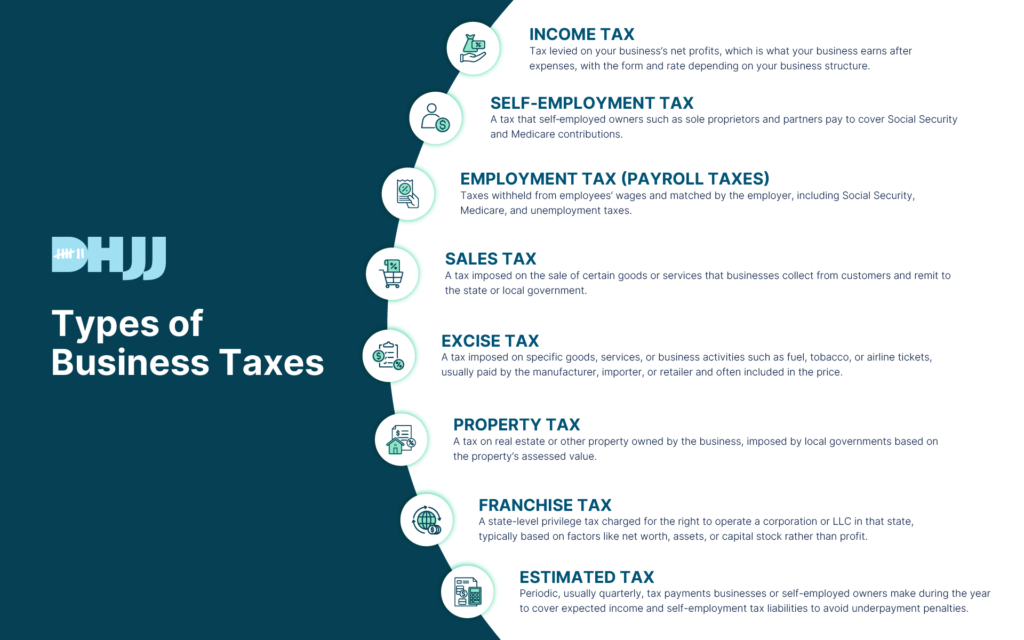Running a business comes with more than just serving customers and managing operations, it also means staying on top of your tax obligations.
Tax missteps can lead to penalties, cash flow problems, or distractions that pull you away from growing your business. But it doesn’t have to be complicated. With the right information, you can better navigate your responsibilities and make decisions that support your business goals.

Income Tax: What Your Business Owes on Profits
All businesses must pay income tax on their earnings. However, how you pay depends on your business structure. Sole proprietors, partnerships, and S corporations typically pass profits through to the owner’s personal tax return, while C corporations pay taxes directly as separate entities.
Your income tax responsibilities can also vary based on credits and deductions available to your business. Strategic tax planning can help reduce your tax burden while keeping you compliant.
Employment Taxes: Staying Compliant with Payroll Obligations
If you have employees, you’re required to withhold and pay employment taxes. This includes Social Security, Medicare, and federal and state unemployment taxes. These taxes can be complex, especially when navigating deadlines and reporting requirements.
Accurate payroll systems and regular reviews can help ensure you’re staying compliant and avoiding penalties.
Sales Tax: Understanding Your State and Local Requirements
Sales tax is imposed on the sale of certain goods and services, and requirements vary significantly by state and locality. If you sell taxable goods or services, it’s critical to know where you have a tax collection obligation, also known as “nexus.”
With states increasing enforcement, particularly for online and out-of-state sellers, staying ahead of sales tax compliance is more important than ever.
Self-Employment and Estimated Taxes: Planning Ahead for Quarterly Payments
Business owners who are self-employed, such as sole proprietors or partners, must pay self-employment tax, which covers Social Security and Medicare contributions. You’re also generally required to make estimated quarterly tax payments to cover your income and self-employment tax throughout the year.
Failing to plan for these payments can lead to underpayment penalties and surprise tax bills.
Get Ahead of Your Tax Responsibilities
Understanding the types of business taxes is the first step to staying compliant and protecting your bottom line. At DHJJ, we help business owners take control of their tax strategy through proactive planning and personalized advice.
Need help navigating your business taxes? Contact DHJJ today to talk with a tax advisor who understands your business and is ready to guide you through every season.





